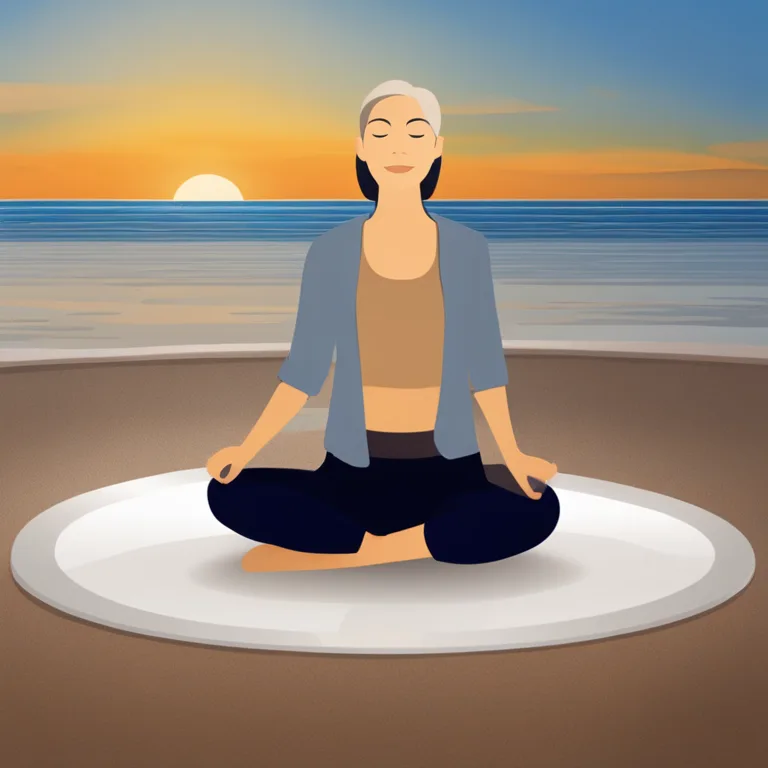
Meditation Practices To Ease Depression
Discover effective meditation techniques designed to alleviate symptoms of depression, fostering a sense of inner peace and emotional well-being.
article by Hina Kurosawa
Introduction to Meditation and Depression
Meditation has emerged as a therapeutic tool for managing depression, providing sufferers with a way to regain control over their thoughts and emotions. As our understanding of mental health continues to evolve, meditation is recognized not just as a spiritual practice, but as a beneficial component of psychological care. In this article, we delve into several meditation techniques that have shown promise in alleviating depressive symptoms. By incorporating these practices into daily routines, individuals may experience a reduction in the intensity and frequency of depressive episodes.

Deep Breathing for Emotional Regulation
One fundamental technique is deep breathing, which can be practiced virtually anywhere and anytime. Slowing down the breath induces a state of calm, which can combat the stress often associated with depression. To practice, find a quiet space, close your eyes, and take slow, deep breaths, focusing on the rise and fall of your abdomen. Counting each inhale and exhale can further enhance concentration and prevent the mind from wandering to anxious thoughts, promoting mental clarity and emotional stability.

Mindfulness Meditation to Stay Present
Mindfulness is another powerful method for managing depression. This practice involves paying full attention to the present moment without judgment. By observing thoughts, feelings, and bodily sensations from a distance, mindfulness teaches us not to dwell on negative patterns that fuel depression. Methods such as the body scan exercise, where attention is paid to each part of the body sequentially, offer a structured way to develop mindfulness and provide an escape from rumination.

Guided Imagery for Positive Visualization
Guided imagery propels individuals into a serene state through the power of visualization. Sessions can be self-led or facilitated by recordings, with scenes often inspired by nature to instill tranquility. By envisioning calming images, a person with depression can shift their focus away from distressing emotions. Engaging the senses—imagining the sound of a waterfall or the scent of a forest—can enhance the immersive experience and combat negative thought cycles.

Yoga and Movement Meditation
Meditative movement, including yoga, combines physical poses with deep breathing and mindfulness to reduce emotional tension. The gentle stretches and flowing movements of yoga are conducive to releasing physical tightness that often accompanies depression. Yoga classes designed specifically for mental health typically focus on poses that encourage relaxation and stress relief, fostering both physical and mental benefits for participants.
Loving-Kindness Meditation for Self-Compassion
Loving-kindness meditation, or Metta Bhavana, is particularly effective for those suffering from depressive thoughts. This practice involves silently repeating phrases of goodwill and kindness towards oneself and others. This repetition aids in reprogramming the mind towards positive thinking and compassion, countering self-critical and hopeless thoughts that are all too common in depressive states.
Cultivating a Regular Meditation Habit
For these techniques to be truly effective in managing depression, consistency is key. Establishing a regular meditation practice allows the benefits to accrue over time. It is important for individuals to find a routine that suits their lifestyle and to set realistic expectations, acknowledging that progress may be gradual. Support from mental health professionals can also be valuable in integrating meditation practices alongside other forms of treatment for depression.
Conclusion: A Holistic Approach to Healing
While these meditation techniques offer a non-pharmacological approach to mitigate depression symptoms, they should be seen as part of a multifaceted strategy that may include therapy, medication, and lifestyle changes. The journey towards healing and mental well-being is deeply personal, and what works for one might not work for another. Incorporating meditation as a complementary practice can lead to significant improvements in one's mental health and overall quality of life.
Published: 12/20/2023
Modified: 12/20/2023
More predictions
Come back here soon to learn more about yourself and your future


Meditation Made Simple
Discover simple meditation techniques perfect for beginners. Integrate mindfulness seamlessly into your daily routine for a more balanced life.


Mindful Sketching: Blending Art With Presence
Delve into the serene practice of meditation and mindfulness drawing to foster inner peace and creative expression.


Beginner's Guide To Mindful Meditation
Discover key steps to starting your journey into mindfulness meditation with this beginner-friendly guide.